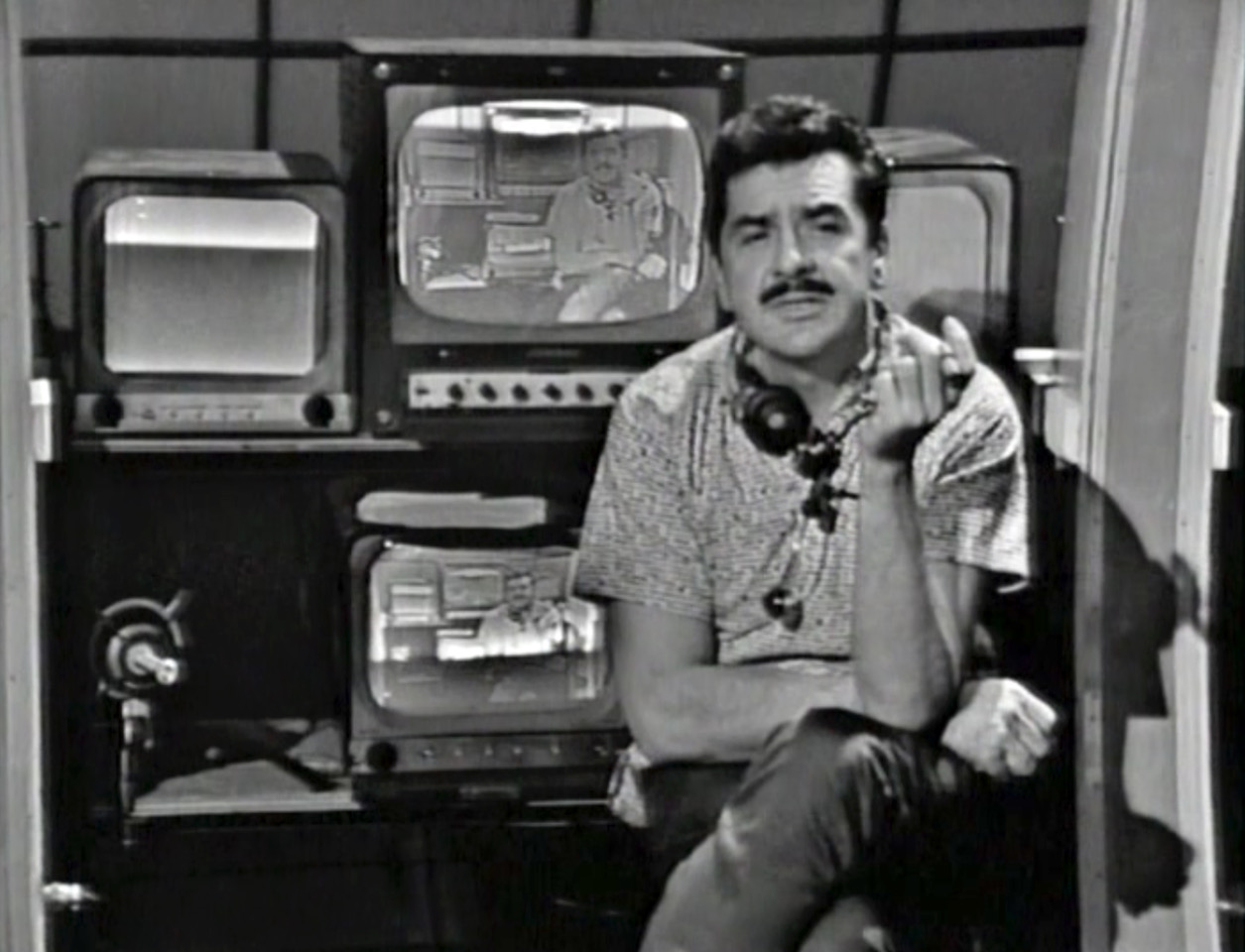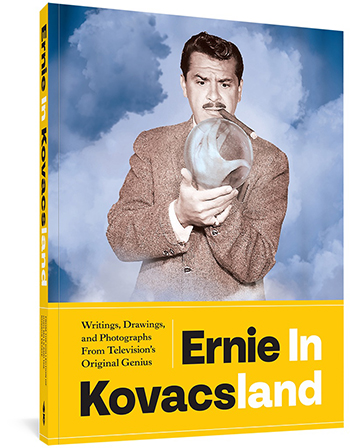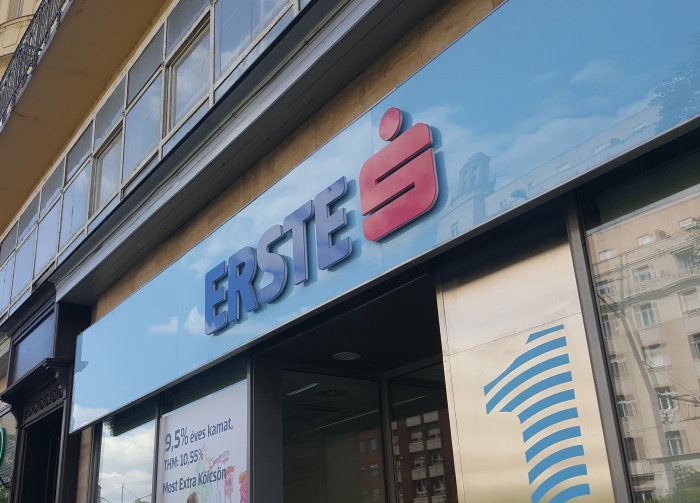Ernie Kovacs, the Groundbreaking U.S. Comedian with Hungarian Parents

Ernie Kovacs
Born in the United States to Hungarian parents, Ernie Kovacs is perhaps the most influential comedian with roots in this country ever. But here, he’s all but unknown. Until I read the exceedingly handsome book “Ernie in Kovacsland” by Josh Mills, Ben Model and Pat Thomas, and published by Fantagraphics, I had only a dim idea who he was.
Kovacs was born to Hungarian parents in Trenton, New Jersey, in 1919. His father, known to everyone as “Pop,” emigrated in 1906 from Tornaújfalu, today Turnianska Nová Ves in eastern Slovakia.
Kovacs grew up in a Hungarian immigrant community that, along with Pop and his Mom, Mary, he drew on for the characters he created. The most obviously Hungarian of these is the boozy lugubrious, and baffling cooking show host Miklos Molnar, surely an inspiration for the Swedish Chef on “The Muppet Show.”
Pop arrived in the States broke and became a beat cop in Trenton. After prohibition was made law in 1920, the gamekeeper turned poacher, so to speak, ran a saloon and then became a bootlegger. The family lived in a 20-room mansion until their fortunes plummeted.
“Mary thought the sun rose and set on Ernie,” Mills told me over Zoom. “But she was a deeply eccentric character. When Ernie was a boy growing up in tough, urban Trenton, she bought him a pony. Pop told Edie, my Mom, who was married to Ernie from 1954 until his death in a car accident in 1962, ‘You see her laugh, you OK. See her grin, you in trouble.’”
Hair-trigger volatile or not, Mary was proudly Hungarian. A guest at the Kovacs’ home during their flush period remembered “Mary’s buffet table decorated in the colors of the Hungarian flag, red and green: all new green twenty-dollar bills under the red paprikas and stuffed cabbage.”
Buster Keaton, Groucho Marx and Kovacs’ best friend Jack Lemmon attended his funeral. Pallbearers included Frank Sinatra, Dean Martin and Charlton Heston. So, how come Kovacs reached such heights in American comedy?
Kovacs received an acting scholarship to the New York School of the Theater in 1937. He began acting in summer stock theater in 1938. In 1939, he caught pneumonia and became so ill he was in a pauper’s hospital in New Jersey for 10 months and not expected to live.
Kovacs and Cigars
When he finally got out of the hospital, Kovacs became a cigar salesman. So began his lifelong association with cigars. Photographs taken at the scene of the car crash that killed him show an unlit cigar near his outstretched fingers.
Incidentally, the pastor of the church where his memorial was held said Kovacs told him, “I was born in Trenton, New Jersey, to a Hungarian couple. I’ve been smoking cigars ever since.”
The connection between Kovacs and cigars lasted decades after his death. To support herself and pay off the colossal debts Kovacs left her with, his wife Edie Adams – Josh’s mother – advertised cigars for many years.
Kovacs’ got his start in broadcasting on the radio, working for Trenton station WTTM. He spent nine years there. During that time, he pulled stunts like trying to see what it was like to be run over by a train (hopping off the tracks at the last minute, in case you wondered). In January 1950, Kovacs moved over to television, a medium made for him.
As Ben Model writes in “Ernie in Kovacsland,” Kovacs created “comedy sketches that worked on the small screen in people’s homes. When he was forced to have a live audience, he’d tell them on air, ‘Watch the monitors, or you’re not going to get any of this!’”
And watching out there in TV land were awestruck fans who would go on to shape American and British comedy and have an impact on the culture itself.
Kovacs’ influence is staggering. George Schlatter, producer of “Rowan and Martin’s Laugh-In,” which ran from 1968 to 1973 and became famous for its anti-Vietnam war, anti-Nixon jokes, hung around Kovacs’ set. Kovacs was also a huge influence on “Saturday Night Live,” probably the most influential comedy sketch show ever.
When SNL star Chevy Chase won the 1977 Emmy nomination, he acknowledged his fellow cast members before saying, “I would also like to thank Ernie Kovacs, I swear!”
Terry Gilliam, a member of the British comedy troupe “Monty Python,” which premiered on U.S. public TV in 1977, grew up in Minnesota watching Kovacs. When he was stuck for inspiration, he’d ask himself, “What would Ernie Kovacs do?”
Yippie Influencer
Looking beyond comedy, Kovacs was an influence on the Yippie activists ( members of the countercultural Youth International Party) who, as Pat Thomas writes in an excellent essay included in the book, “revolutionized political activism in the 1960s.”
One of their stunts included shutting down the New York Stock Exchange by “dropping dollars onto the floor, which traders fought over.” As Thomas says, “Kovacs’s comedy was apolitical, but his style helped inspire a later generation of leaders that led young people against the bogus Vietnam War.”
Musically, Kovacs influenced Alice Cooper, Frank Zappa and the New Wave band Devo. The great Hungarian-American jazz guitarist Gábor Szabó was a fan.
Today, Kovacs’ reputation is kept alive by Josh Mills and Ben Model, who curated DVD collections devoured by fans old and new from the 1990s onwards. Mills regards himself as “the keeper of the flame.” For him, Kovacs’ comedy is timeless.
“Ernie didn’t reference contemporary politics,” he told me. “His take was if anyone took themselves seriously, they deserved a pie in the face, thrown by him.”
Model credits Kovacs for inspiring him to think “not just outside the box but to realize there’s no box.”
For Pat Thomas, Kovacs is “artistically subversive. He remains popular because there’s nothing else quite like him. Unlike so many comedians, he never spoke down to an audience.”

This article was first published in the Budapest Business Journal print issue of January 26, 2024.
SUPPORT THE BUDAPEST BUSINESS JOURNAL
Producing journalism that is worthy of the name is a costly business. For 27 years, the publishers, editors and reporters of the Budapest Business Journal have striven to bring you business news that works, information that you can trust, that is factual, accurate and presented without fear or favor.
Newspaper organizations across the globe have struggled to find a business model that allows them to continue to excel, without compromising their ability to perform. Most recently, some have experimented with the idea of involving their most important stakeholders, their readers.
We would like to offer that same opportunity to our readers. We would like to invite you to help us deliver the quality business journalism you require. Hit our Support the BBJ button and you can choose the how much and how often you send us your contributions.








